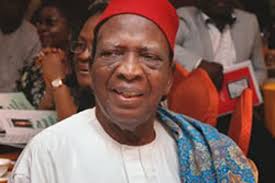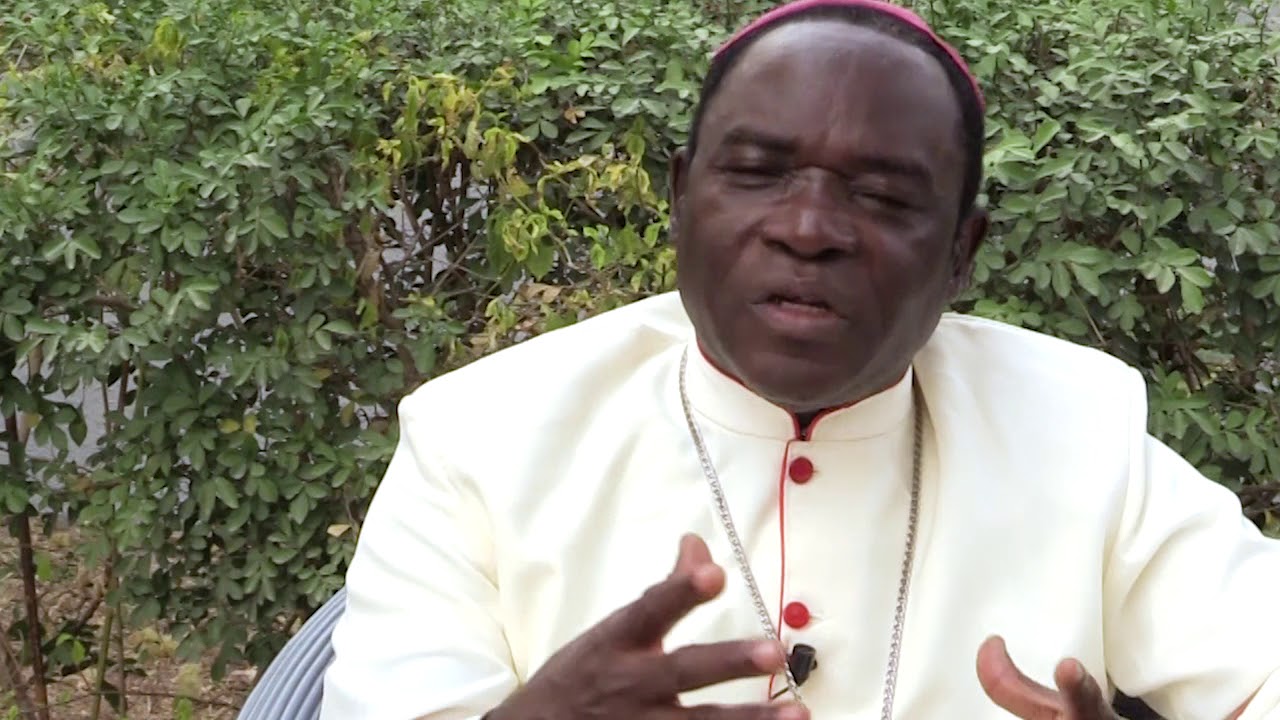Postponement Has Undermined Polls’ Credibility – Nwabueze
Legal icon and elder statesman, Professor Ben Nwabueze, SAN, has rues the Independent National Electoral Commission, INEC’s postponement of the 2019 general polls, saying the move had compromised the credibility of the elections.
Few hours to the commencement of the polls, last Saturday, INEC Chairman, Professor Mahmood Yakubu, postponed the Presidential and National Assembly, NASS, polls by one week, citing logistics challenges.
While the presidential and NASS elections will now hold on February 23, the governorship and state House of Assembly polls will be conducted on March 9.
Faulting the postponement, yesterday, Professor Nwabueze, in a 2,389-word statement titled: ”Consequences and Implications of The One-Week Postponement of The 2019 General Elections,” said the announced postponement ”four hours or so before the time scheduled for it, has not only compromised or undermined the credibility of the elections whenever they are held, but has also brought forcibly to the fore the truth that INEC is not truly an independent electoral umpire, contrary to the word ‘independent’ in its name.
Nwabueze, who said that the 2019 polls meant self-survival for the Igbo ethnic nationality having been allegedly reduced to less than second class citizens in the country, added that Professor Yakubu should be allowed to conduct the polls but removed thereafter ”for involving himself or allowing himself to be used for such a discreditable act.”
The statement read in part: ”In an Address to a meeting of stakeholders on the same day the postponement was announced, Professor Mahmood eloquently pleaded logistical and other problems as the reasons for the postponement. But the central issue raised by the postponement concerns the consequences and implications which the postponement has for the credibility of the elections, whenever they are held, not the reasons for it (i.e. postponement). The postponement has created so much suspicion in the minds of millions of Nigerians, and so much questioning as to what is the real reason for it, and what are the unseen forces manipulating INEC.
‘More specifically, the question Nigerians are asking is whether it is really possible that such a grave decision, as the postponement of the General Election, affecting the vital interests of the country, its domestic as well as global interests, and involving huge financial and other costs, could have been taken by a so-called independent electoral commission four hours before the time scheduled for it, without reference to, and without the knowledge and at least acquiescence of, the President of the country. If it is possible, then, anything is possible in Buhari’s Nigeria. Yakubu must go after polls ”The suspicions, thus generated, being emanations of the mind, are not easily dispelled, once created; they compromise or undermine the credibility of the elections, whenever they are held. That is the measure of the catastrophe Professor Mahmood Yakubu has brought upon the country.
‘ Credibility presupposes and is built upon public confidence or belief in the competence of INEC. Even President Buhari himself has described the postponement as an act of incompetence, whatever the reasons for it, which are of questionable justifiability, anyway. ”Professor Mahmood should be left to conduct the elections on the rescheduled dates, but thereafter removed from office for involving himself or allowing himself to be used for such a discreditable act.” Presidential poll means self-survival for Igbo
‘The 2019 Presidential Election means for Ndigbo more than what it means for other Nigerians; it means for us self-survival. From where we were before, we have been reduced to less than second class citizens. The electoral victory of Atiku Abubakar/Peter Obi ticket is necessary for our self-survival. Ndigbo must therefore not be discouraged by the postponement, but must turn out massively to vote for the survival of the race, whatever the inconveniences and whatever the sacrifices entailed.
”The postponement of the elections forces us to address the long-term issue concerning the independence of the electoral body. The 1999 Constitution changed the name of the Commission from FEDERAL ELECTORAL COMMISSION, as it was under the 1979 Constitution (section 140(1)) to the INDEPENDENT NATIONAL ELECTORAL COMMISSION (section 153(1)). The significance and implication of the change seems to be lost on us, as we appear to take the change as a mere change of name devoid of any serious implication.
”The implication of the word “Independent” in the name of the Commission is to make the Commission’s independence a specific constitutional requirement, and to give it paramountcy over everything else. It is a contradiction of the significance of the change to think that an electoral commission whose members are appointed by the President and may, subject to some restrictions, be removed by him, can be truly independent of him, especially where his overriding interests in his continued stay in office are involved, as they are when he is a candidate seeking re-election for a second term.
In a situation where a President, invested with power to appoint and remove members of the Commission, is a candidate seeking re-election for a second term, the Commission would be other than human if it claims to be entirely free from bias or partiality in the conduct of the election.
The independence of the Commission in such circumstances is not much more than a farce, as it is in the present case of President Buhari and INEC. INEC is, in real, practical terms, an instrument of President Buhari in his bid for re-election for a second term.
‘It is remarkable that the 1999 Constitution contains no specific provision implementing the constitutional requirement implied in the word independent appearing in the name of the Commission. In this respect, the 1999 Constitution is a departure from the 1960 and 1963 Constitutions.
‘First, whilst the provision in the two Constitutions was by no means adequate, they provided that “in the exercise of its functions under this Constitution, the Electoral Commission…..shall not be subject to the direction or control of any other person or authority.” The words “in the exercise of its functions under this Constitution” are italicized to emphasize that the purpose and concern of the provision was to free the Commission from control or direction in the conduct of elections. The provision is thus in the nature of a constitutional guarantee of the independence of the Commission from outside interference in the conduct of elections: it is a constitutional prohibition of such interference.
The object was to secure and protect the neutrality of the Commission as an electoral umpire.
‘The guarantee and prohibition was removed in the 1979 and 1999 Constitutions and replaced by a new provision totally irrelevant to the evil calling to be redressed. The new provision merely states that “in exercising its power to make appointments or to exercise disciplinary control over persons….the Electoral Commission shall not be subject to the direction or control of any other authority or person”; sections 145(1), 1979; 158(1), 1999 Constitution.
The removal of the old provision and its replacement by the new one must be one of the several changes unilaterally inserted into the 1979 Constitution by Obasanjo’s absolutist Federal Military Government after the draft of it has been passed by the Constituent Assembly. Freed from the prohibition of the old provision in the 1960 and 1963 Constitutions, President Obasanjo as civilian President was thus able to subject the Commission to manipulation of various kinds, as President Buhari is now doing, albeit through invisible influences. The guarantee and prohibition in the 1960 and 1963 Constitutions should be restored in any review of the 1999 Constitution.




